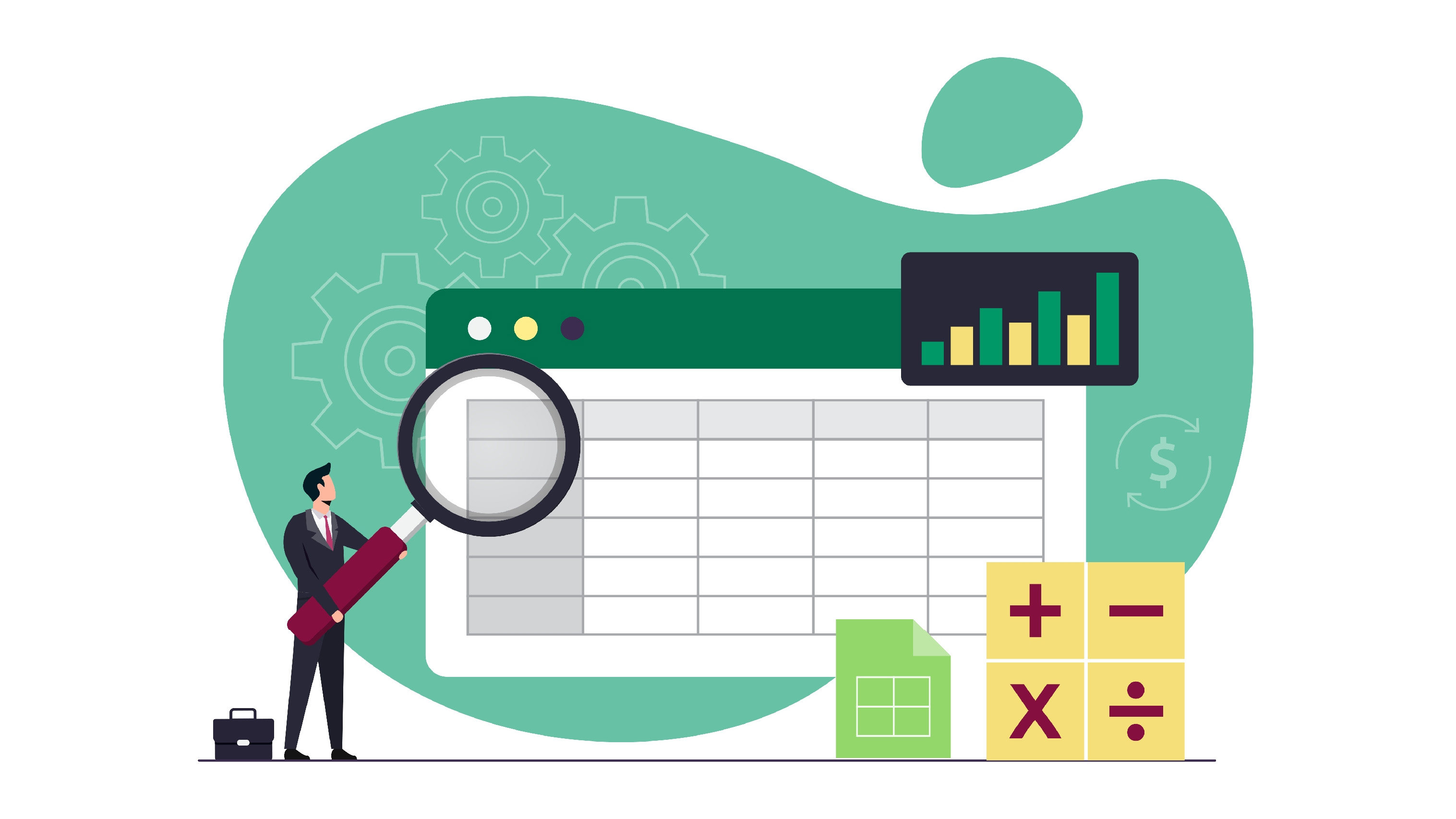CapEx v OpEx: does it matter who is holding the purse strings?
Accounting for cloud computing is often presented as a a simple case of CapEx=bad, OpEx=good but it's a bit more complicated than that

Sign up today and you will receive a free copy of our Future Focus 2025 report - the leading guidance on AI, cybersecurity and other IT challenges as per 700+ senior executives
You are now subscribed
Your newsletter sign-up was successful
The information technology industry and the finance industry both have more than their fair share of abbreviations and acronyms. The former has the likes of MoBo and TCP/IP, whilst the latter has the likes of IFRS and SSAP, and most of the time there isn’t much overlap between the two sets of terms of reference. But every now and again a word or phrase makes it across the great divide, and the two worlds find themselves speaking almost the same language.
This works reasonably well when you have terms such as CPM and ERP, and everybody knows what they are talking about; it works less well when you have terms such as CapEx and OpEx, and everybody thinks they know what they are talking about. ‘There’s a big difference between what accounting and technology types mean when they use these terms of reference together,’ says Richard Anning, who is head of the IT faculty at the Institute of Chartered Accountants in England and Wales.
Over the past few years, advocates of cloud computing have ‘adopted’ these accounting terms of reference and turned them into a metaphor for the received wisdom that ‘cloud computing is good because it shifts capital expenditure to operating expenditure, and the latter is always preferable to the former’. But whilst it may be convenient to equate CapEx with up-front expenditure and OpEx with paying for something over time, it isn’t always appropriate.
"This is rather simplistic from an accounting point of view, and it’s not exactly CapEx and OpEx,’ says Anning, ‘and the debate that’s taking place about finance and cloud computing tries to over-simplify something that is complex and multi-faceted.’ Although OpEx can conveniently and reasonably accurately be defined as ‘day-to-day operating expenses’, it’s difficult to explain what accountants mean when they refer to capital expenditure without getting lost in the technicalities.
CapEx refers to the expenses that a business incurs when it invests in new 'assets' or existing ones, but this superficially straighforward explanation hides layers of complexity. The accounting definition, classification, guidelines, scope and implications of CapEx all vary depending on context, and there are thorny issues such as tangible and intangible assets, their depreciation and amortisation, accounting for different national tax jurisdictions, and capital lease arrangements to consider.
"‘From an accounting point of view, the CapEx versus OpEx debate is more nuanced than 'the cloud is good because it shifts capital expenditure to operating expenditure'," says Anning, because a decision on how to finance access to technology resources can have an impact in more than one area of accounting. ‘It can affect financial management, financial reporting, and tax,’ he explains, ‘and accountants who specialise in these will be thinking about CapEx and OpEx in different ways’.
On the financial management side, for example, where cash flow is an issue, they will probably be of the opinion that it’s better to have cash in hand than it is to spend it, but the issue is more complex. ‘It’s to do with Net Present Value,’ he says, particularly if access to the cash itself is not an issue. ‘The question is, “Is it cheaper for the business to pay out now, or is it cheaper to pay for something over one year or five years?”,’ Then there are a host of taxation and financial reporting issues to consider.
Sign up today and you will receive a free copy of our Future Focus 2025 report - the leading guidance on AI, cybersecurity and other IT challenges as per 700+ senior executives
Nonethless, there are scenarios where funding IT purchases from a CapEx or an OpEx budget does have clear financial benefits. "SaaS is an operational expense,’ says Gary White, the CFO of White Springs, a provider and user of cloud computing services. ‘It’s easier to sell when you deal with the sales director than it is when you sell into the CapEx world and finance gets involved, because they hold the strings to very different purses,"says the technology veteran who also trained as an accountant.
Although it is generally easier for non-finance managers to access money from their operational budgets (particularly if these budgets have been agreed annually and are not revised on a monthly, quarterly or rolling basis), there are exceptions. ‘If there is still money left in the pot at the end of the tax year it may be easier to access finance from the CapEx budget,’ suggests Anning, even if somebody in finance does hold the purse strings.
In a world where the definition of cloud computing includes not just public cloud services, but private clouds and hybrid clouds, the nature of the CapEx OpEx debate changes. An organisation that is building its own private cloud (which is effectively its own private data centre) may be unable to do so without dipping into its CapEx budget, whilst an organisation that has its private cloud hosted by a third party provider is doing something very different – operationally and financially.
The data centre is one place where the tax implications of public clouds and private clouds (and their various incarnations) require careful consideration. Acquiring technology assets (that can be capitalised) and hence reduce in value as time passes, can have tax advantages; likewise, if an organisation has years of CapEx depreciation left on boxes in a data centre, this can be an important factor if it’s contemplating a move into a public cloud.
So, if we cut to the bottom line, the issue of whether the money that pays for cloud computing is either CapEx or OpEx, and which of these is preferable, is not a clear-cut one. "It requires a series of judgment calls,"says Anning, and if they are to deliver maximum benefit to the organisation as whole, it’s probably a good idea to involve an accountant (or two, or three) in the decision-making process – whether they are holding the CapEx purse strings, or you are holding the OpEx purse strings.
Lesley Meall is a freelance journalist and editor. She has been writing about accountancy, business and technology for more years than she cares to remember, and before this, at some point in the dim and distant past, she used to be a software engineer.
-
 Stop treating agentic AI projects like traditional software
Stop treating agentic AI projects like traditional softwareAnalysis Designing and building agents is one thing, but testing and governance is crucial to success
-
 PayPal appoints HP’s Enrique Lores in surprise CEO shake-up
PayPal appoints HP’s Enrique Lores in surprise CEO shake-upNews The veteran tech executive will lead the payments giant into its next growth phase amid mounting industry challenges
-
 Nationwide forges closer ties with AWS in cloud transformation push
Nationwide forges closer ties with AWS in cloud transformation pushNews The building society is “consolidating and modernizing” cloud infrastructure and focusing heavily on internal skills development
-
 Finance and security leaders are odds over cyber priorities, and it’s harming enterprises
Finance and security leaders are odds over cyber priorities, and it’s harming enterprisesNews Poor relations between the departments can be solved by CISOs talking in a language CFOs understand
-
 How AI is reshaping the role of spreadsheets in accounting
How AI is reshaping the role of spreadsheets in accountingIndustry insights Modernizing spreadsheets can enable secure and AI-ready accounting and finance functions
-
 Implementation and atychiphobia: helping SMEs overcome fear
Implementation and atychiphobia: helping SMEs overcome fearIndustry Insights Fear of failure stalls SME system upgrades, but resellers can calm concerns and build confidence
-
 HSBC says get back to the office or risk bonuses – and history shows it’s a tactic that might backfire
HSBC says get back to the office or risk bonuses – and history shows it’s a tactic that might backfireNews HSBC is the latest in a string of financial services firms hoping to tempt workers back to the office.
-
 Unlock the potential of LATAM’s booming crypto market
Unlock the potential of LATAM’s booming crypto marketwhitepaper Strategic pathways for crypto companies looking to expand into Latin America
-
 The customer knows best: How to ensure you’re delivering an effective digital payments experience
The customer knows best: How to ensure you’re delivering an effective digital payments experienceSponsored Tap into shifting customer trends with account information services that will give your business a competitive edge
-
 How AI is accelerating digital transformation in the banking industry
How AI is accelerating digital transformation in the banking industrySupported Content Gen AI, fraud detection, and chatbots are all transforming the financial industry, but the cloud is the foundation for it all